Seven conclusions from Paris-Nice and Tirreno-Adriatico
Pogačar and Roglič dominate, questions for Evenepoel and Ineos, plus Classics hints
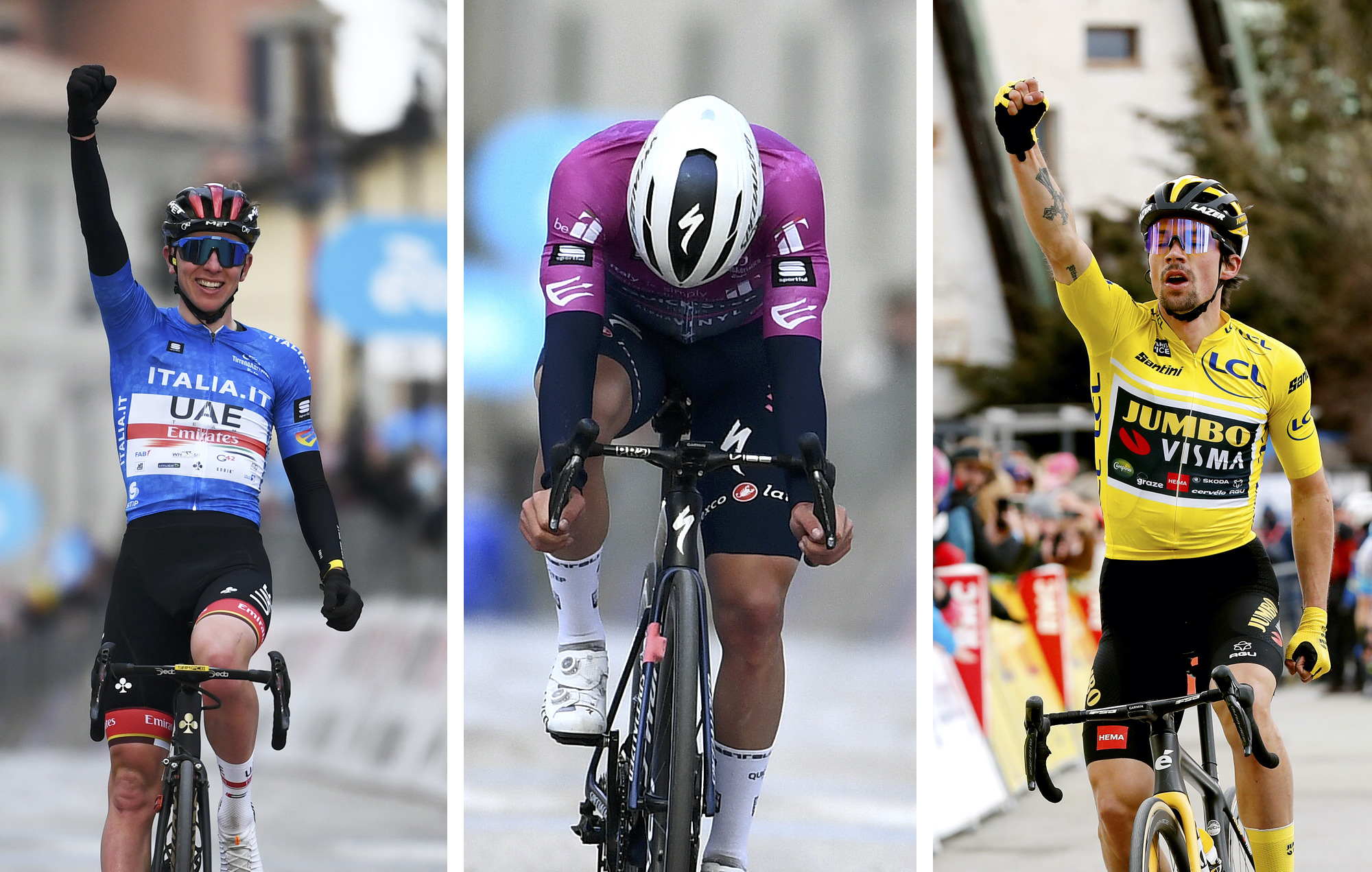
Paris-Nice and Tirreno-Adriatico always feel like important junctures - a step up in prestige and performance after the introductory offerings of the early season.
The two WorldTour races act as a gateway to the Spring, with the main Spring Classics campaign getting going from here, while also setting the tone for the Grand Tours to come in the spring and summer.
They usually only partially overlap but this year the 'Race to the Sun' and the 'Race of the Two Seas' ran almost concurrently, offering a glut of top-level racing and a chance to see almost all of cycling's stars in action at the same time.
From Tadej Pogačar and Primož Roglič underlining their credentials with overall victories, to question marks for Ineos Grenadiers and Remco Evenepoel, plus markers for the Spring, Cyclingnews runs through the major talking points from the past week.
Pogačar and Roglič's opening gambits on the long road to July
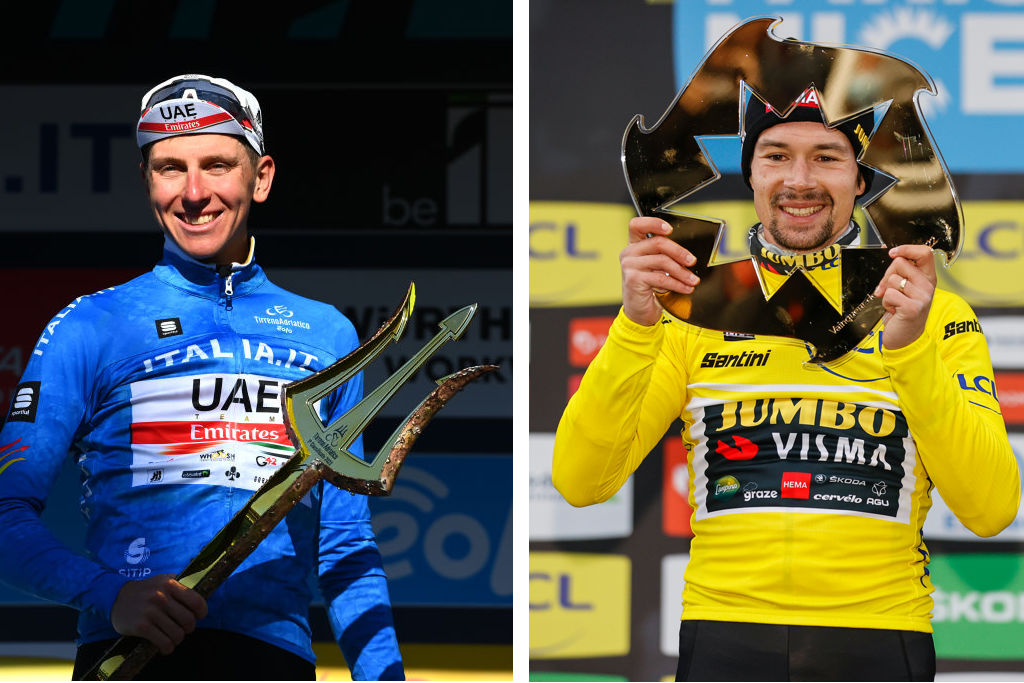
Tadej Pogačar (UAE Team Emirates) and Primož Roglič (Jumbo-Visma) won’t line up against one another in a stage race until the Tour de France, meaning that their duel is something akin to a game of correspondence chess in the opening half of the season.
Each man’s opening gambit has been in keeping with his style, and Pogačar’s was, as is his wont, more spectacular. Already winner of the UAE Tour last month before his remarkable solo triumph at Strade Bianche, he continued in the same vein with a strikingly dominant display at Tirreno-Adriatico.
The comparisons with Eddy Merckx seem to become a little less fanciful every time he swings his leg over a bike, and the Slovenian youngster has now positioned himself as a firm contender for both Milan-San Remo and the Tour of Flanders. On last week’s evidence, he is the obvious favourite for a third successive Tour de France victory.
The latest race content, interviews, features, reviews and expert buying guides, direct to your inbox!
And yet the only man with genuine hopes of denying him can also be satisfied with his first stage racing moves of the 2022 season. True, Roglič’s victory at Paris-Nice was less dominant than Pogačar’s Tirreno-Adriatico triumph, but then that has always been the Jumbo-Visma man’s modus operandi.
Occasionally a long time trial has helped him to deliver a knock-out blow but Roglič usually tends to win his bouts on points, working the clock by accruing seconds here and there, be it through late accelerations or time bonuses.
At Paris-Nice, that left Roglič open to a late scare when Simon Yates (BikeExchange-Jayco) leapt into the offensive on the final stage, but with more than a little help from Wout van Aert (Jumbo-Visma), he absorbed the blow and ended a sequence of ill fortune in French stage races in the process.
Despite the late wobble, Roglič can also take heart from the depth of the opposition he beat in France, which included Adam Yates and Daniel Martinez, who look set to be Ineos’ key men at the Tour.
Pogačar, of course, showed no weaknesses whatsoever at Tirreno-Adriatico, and he remains resolutely the man to beat in July. But Roglič looks to be the only person capable of even playing the same game.
Or as Simon Yates’ put it after Roglič’s win atop the Col de Turini: “He’s not even breathing and everyone else is panting like they’re on their deathbeds.” (BR)
Ineos Grenadiers lagging behind the other 'super teams'
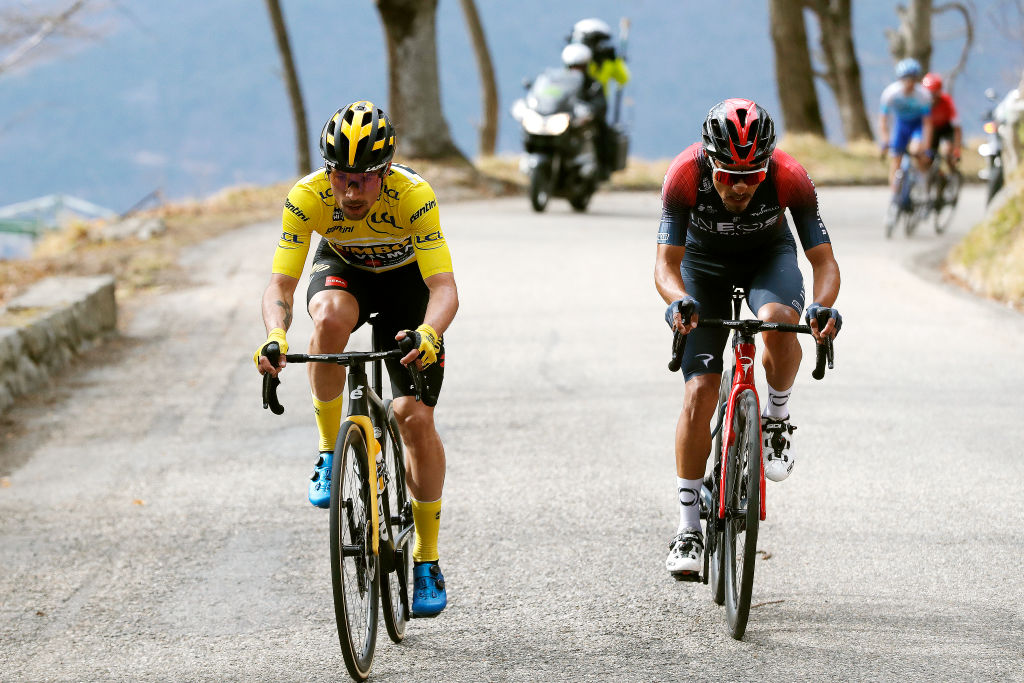
A Paris-Nice podium and fourth place at Tirreno-Adriatico are not your usual soul-searching triggers, but when you've won as much as Ineos Grenadiers have, the bar for success is set differently to most.
The British team dominated professional cycling for many years but the past week's racing seemed to confirm their more lowly place in the new order. Pogačar and Roglič have come along but it's not just those two individuals; it's their teams as well.
Roglič's Jumbo-Visma have been strong for a number of years but were staggeringly good at Paris-Nice, with two podium sweeps on separate stages, while Jonas Vingegaard finished runner-up at Tirreno. Meanwhile, Pogačar's UAE Team Emirates squad, somewhat questioned last year, already look like a major force this year and are comfortably top of the UCI rankings. Rafal Majka and Mikkel Bjerg helped control Tirreno for Pogačar while over in Paris-Nice Brandon McNulty continued his storming start to the campaign.
For their part, Ineos placed third and fourth at Paris-Nice through Dani Martínez and Adam Yates, while illness scuppered their Tirreno plans, with Richie Porte riding to a respectable fourth after the losses of Richard Carapaz and Tao Geoghegan Hart. These are great rides and great performances but, again, do the normal standards apply to Ineos? If so, that would itself amount to a recalibration of their place in the hierarchy.
The management spoke about a need to 'go back to the drawing board' over the winter. Last year they won the Giro d'Italia and a string of major week-long races. However, none of the fields contained Pogačar or Roglič, and the past week's racing only underlined that pattern. It's a problem, and one that, with Egan Bernal out for the foreseeable future, doesn't look like being solved anytime soon. (PF)
Jumbo-Visma's strength undeniable despite missteps
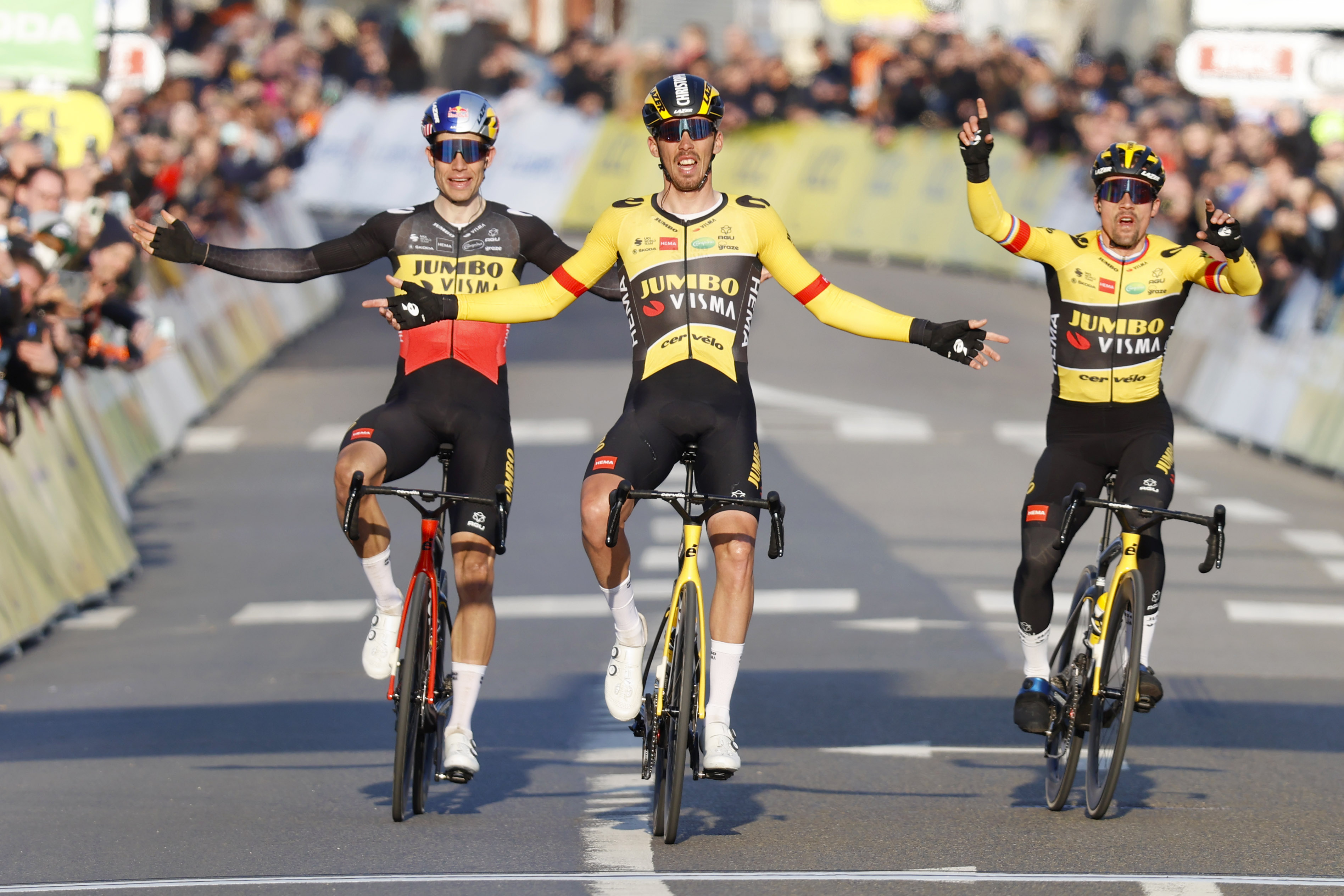
When Van Aert, Christophe Laporte and Roglič cruised clear of the Paris-Nice peloton in the finale of stage 1, Jumbo-Visma looked like the second coming of Mapei/Gewiss/TI-Raleigh/Molteni (delete according to age), and that impression was only cemented when the Dutch squad also dominated the Montlučon time trial on stage 4.
That sheen of invincibility dissipated somewhat 24 hours later, however, when Roglič found himself surprisingly isolated on the run-in to Aubagne. Suddenly, the quality of Roglič’s supporting cast was being questioned, even if the man himself refused to panic, far less to criticise.
Roglič had every reason not to overreact. After all, at least two of the climbers who will shepherd him in July, Vingegaard and Sepp Kuss, were at Tirreno-Adriatico, with the Dane impressing en route to second overall behind Pogačar.
At Paris-Nice, Steven Kruijswijk was affected by his early crash, but new signing Rohan Dennis demonstrated his value with a fine displays of pace-setting on the Col de la Mure and the Col de Turini. It’s a mystery as to how Dennis’ gifts weren’t harnessed during his time at Ineos save for his remarkable display in the final week of the 2020 Giro. But at this point, the Australian looks like a very significant addition to Jumbo-Visma’s depth in July.
The most notable missing link for Roglič in on stage 5 Aubagne was Van Aert, who lost the yellow jersey that day when he sat up on the Col de la Mure, although that was broadly in keeping with the Belgian’s plans for Paris-Nice. After going deep to finish second overall at Tirreno-Adriatico last year, he preferred to spare himself for the Classics this time out, sacrificing any GC ambitions last week.
No matter, despite his current focus on the cobbles, Van Aert clearly hasn’t forgotten how to climb, as his display in Sunday’s finale demonstrated.
“Half human, half motor,” was Roglič’s assessment, an echo of what he had already said about Dennis in Aubagne.
Beating Pogačar in July is a conundrum, but Roglič won’t lack in support. (BR)
Pedersen pinging
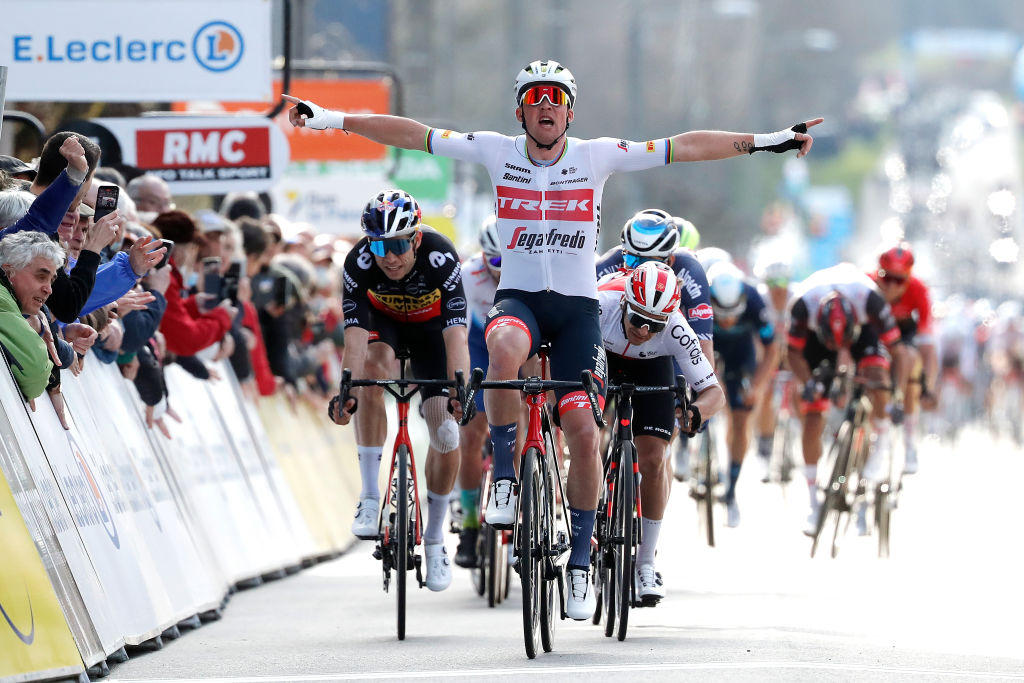
Wout van Aert won a stage at Paris-Nice, finished on the podium of five others, and effectively saved the overall title for Roglič, showcasing the sheer depth of quality that will make him the man to beat at the Classics. However, in terms of the upcoming spring campaign, one rider caught the eye in a more subtle way: Mads Pedersen.
The former world champion won stage 3 of the French race with a storming uphill sprint, and he would have won stage 6 had the peloton not been foiled by Mathieu Burgaudeau (Team TotalEnergies).
The rider he comfortably out-sprinted on both occasions? Van Aert.
While Van Aert got the better of Pedersen in a messy stage 2 sprint, the uphill drag in Dun-le-Palestel, the next day was a truer test and one that arguably suited Van Aert better on paper. He had the box seat, too, tucked in Pedersen's slipstream as the Dane hit out from long rage with over 250 metres to go. But Van Aert couldn't get out of that slipstream, and Pedersen only ended up pulling further away. A few days later, Aubagne, in the point was underlined: Pedersen is currently faster that Van Aert.
That may have something to do with Van Aert's versatility and the fact he was able to drop a range of climbers on the Col d'Eze on the final day, but it's still an interesting development ahead of the Classics. Van Aert suggested it's something he can address, but will some riders have the same fear about going to the finish with him this spring?
Pedersen has no reason to be afraid. He has struggled for consistency in recent years - mostly due to crashes - but his world title and wins at Gent-Wevelgem and Kuurne-Brussel-Kuurne have regularly underlined his class. He's clearly in red-hot form and might just have set himself up for a sparking spring. (PF)
Evenepoel given sobering view of Pogačar's dominance
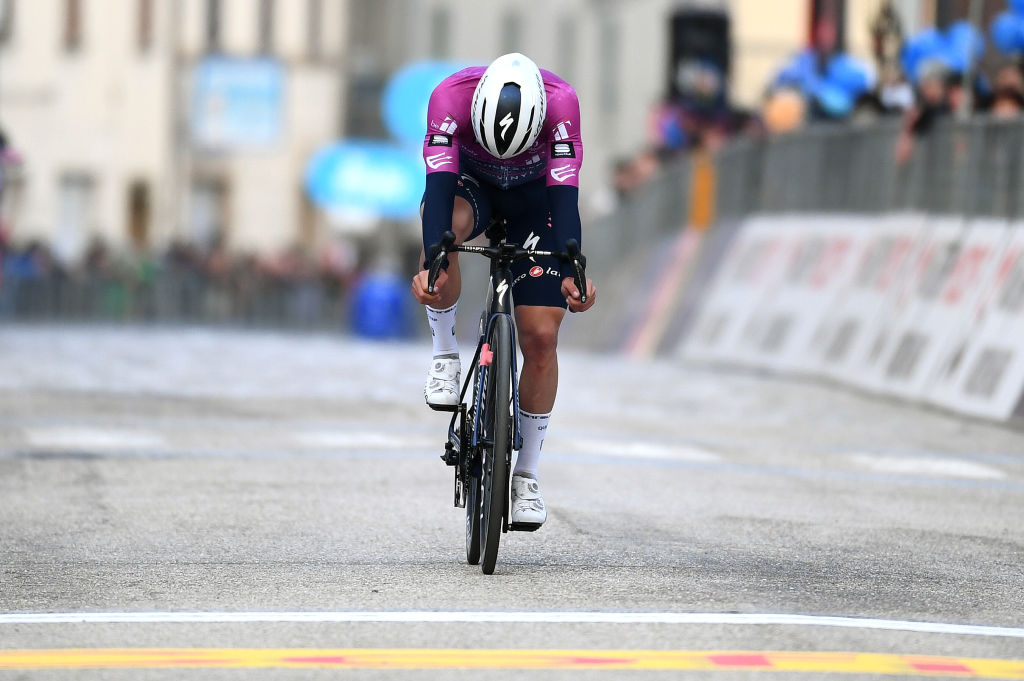
After winning the Volta ao Algarve last month, Remco Evenepoel suggested that competing for victory in a WorldTour race like Tirreno-Adriatico was something else altogether, and so it proved.
The Belgian’s first stage race meeting with Pogačar at Tirreno-Adriatico ended with a beating. Evenepoel had the edge in the opening time trial in Lido di Camaiore and battled gamely on the explosive finales that followed, only to concede more than four minutes on the Carpegna on stage 6, finishing the event in 11th place overall.
For the time being at least, Pogačar inhabits an altogether different realm to Evenepoel, at least when the gradient stiffens. Though still only 23, Pogačar is the finished article. Evenepoel, 22, remains a work in progress.
Evenepoel’s gifts as a rouleur, not to mention his sequence of multi-day success to this point, means that he is right to continue to test his potential as a stage race rider, and his Vuelta a España performance will be worth following with interest, but it should not come at the expense of exploring other possibilities.
Former Lotto Soudal manager Marc Sergeant, always sober in his assessment, wondered as much in his column in Het Nieuwsblad on Monday, suggesting that Evenepoel – prone to a jour sans in stage races – should divert more attention to one-day racing, citing his victories at the Clasica San Sebastian and Brussels Cycling Classic.
“Perhaps Evenepoel had to rearrange his goals, if only temporarily,” Sergeant wrote.
“If he has a great day in those one-day races, who is going to bring him back? And if you have a dip there, a day is lost, but not a whole week or more. It's going to give him more satisfaction than what he's doing now.”
The upper respiratory minefield
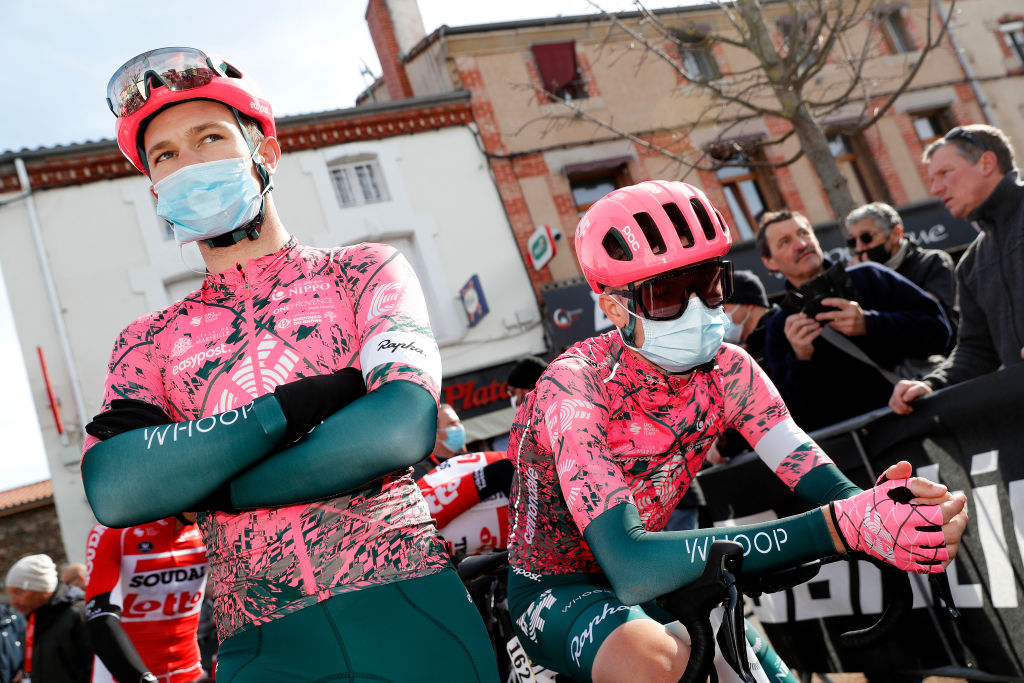
With the Omicron variant running riot in Europe at the start of the year, it was widely predicted that early-season and spring success would hinge not only on a winter base and top-end form, but on avoiding COVID-19 coronavirus. The infection rate in the wake of the Middle Eastern races underlined that theory but the past week has shown that illness is a huge factor and that it's not limited to COVID.
Sinusitis, bronchitis, flu, upper respiratory infection, cold-like symptoms... how many times have we seen these words in team statements this past week?
Only 59 riders finished Paris-Nice. The problem wasn't quite as acute at Tirreno but, still, 24 riders failed to finish. And there has been not one confirmed case of COVID-19.
The pandemic may have had an indirect impact, with one theory holding that the shielding of the past couple of years has reduced our general immunity to common colds.
Either way, with races opening back up and looking close to normal again, it's clear that the best-laid plans can be undone with a single intake of breath, and that for many the spring will be a case of shutting eyes and crossing fingers. (PF)
One better for Ewan at Milan-San Remo?
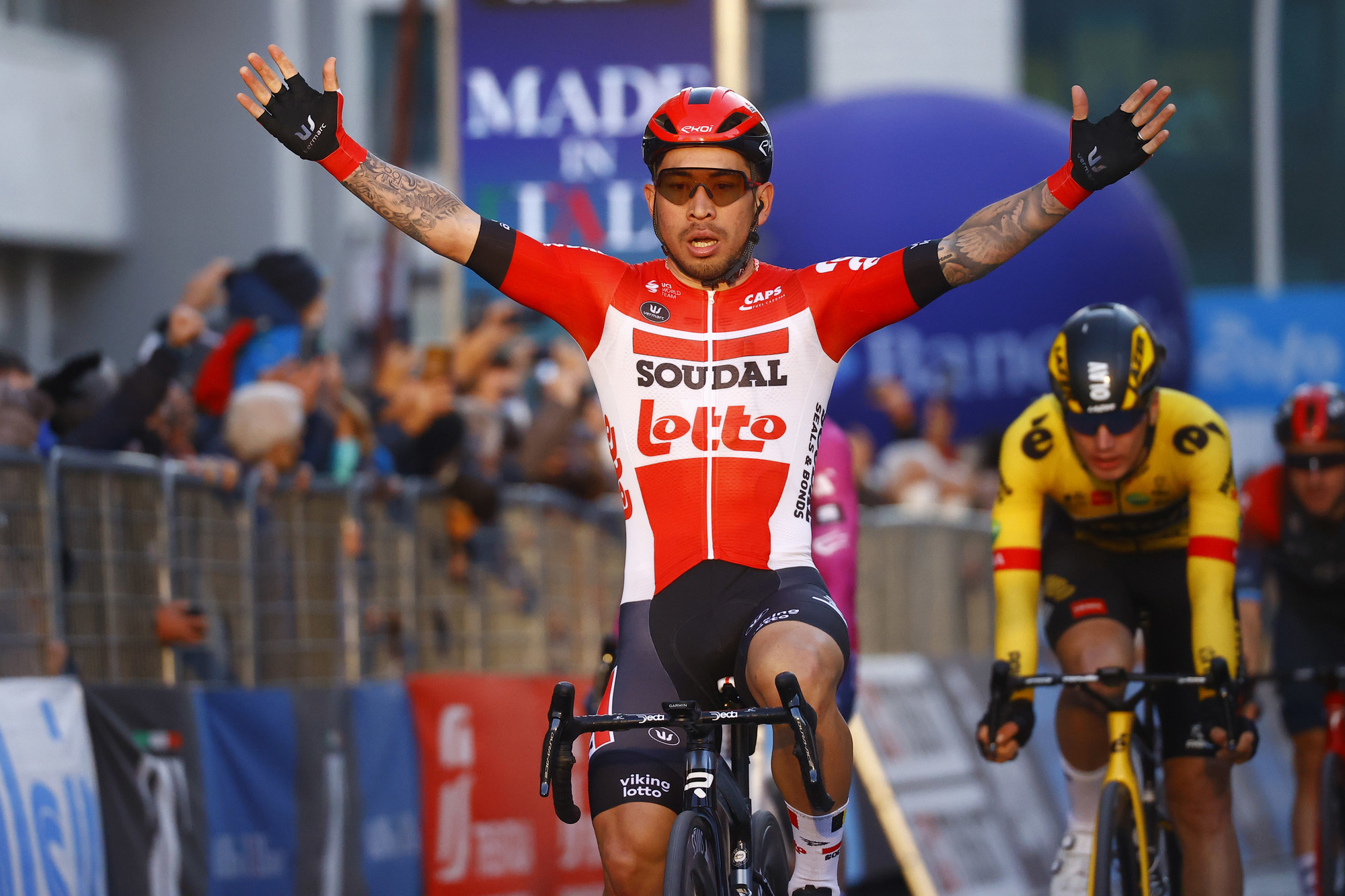
Caleb Ewan (Lotto Soudal) swept up his first stage victory at Tirreno-Adriatico on stage 3, bouncing back from a feed zone crash and bike change to beat Arnaud Démare (Groupama-FDJ) and Olav Kooij (Jumbo-Visma) on the cobblestones of Terni.
It’s one place better than the Lotto Soudal rider has ever managed at the race before as this is the first time the Australian has taken a victory at the "race of the two seas". He has delivered four second places, though, the most recent of which came in 2021 and 2018, both years when he soon after also came second at Milan-San Remo.
The fact that he pulled out early on stage 4, if history is anything to go by, shouldn't be any cause for concern. For a start immediately after the stage 3 crash his team said that, beyond a bike change, there were no further consequences plus it is his usual pattern for the race. He hasn't raced right till the end since 2016 and stage 4 is also one stage later than he pulled the pin last year.
All in all the signs are good that he has the potential to go one better at Milan-San Remo as well.
Not only has Ewan proved his sprint form and delivered a confidence boost with the Tirreno-Adriatico victory, but at Kuurne-Brussel-Kuurne last month he showed signs of the climbing form that helped him keep pace with Julian Alaphilippe (QuickStep-AlphaVinyl) and Wout van Aert (Jumbo-Visma) on the Poggio last season. (SG)

Barry Ryan was Head of Features at Cyclingnews. He has covered professional cycling since 2010, reporting from the Tour de France, Giro d’Italia and events from Argentina to Japan. His writing has appeared in The Independent, Procycling and Cycling Plus. He is the author of The Ascent: Sean Kelly, Stephen Roche and the Rise of Irish Cycling’s Golden Generation, published by Gill Books.